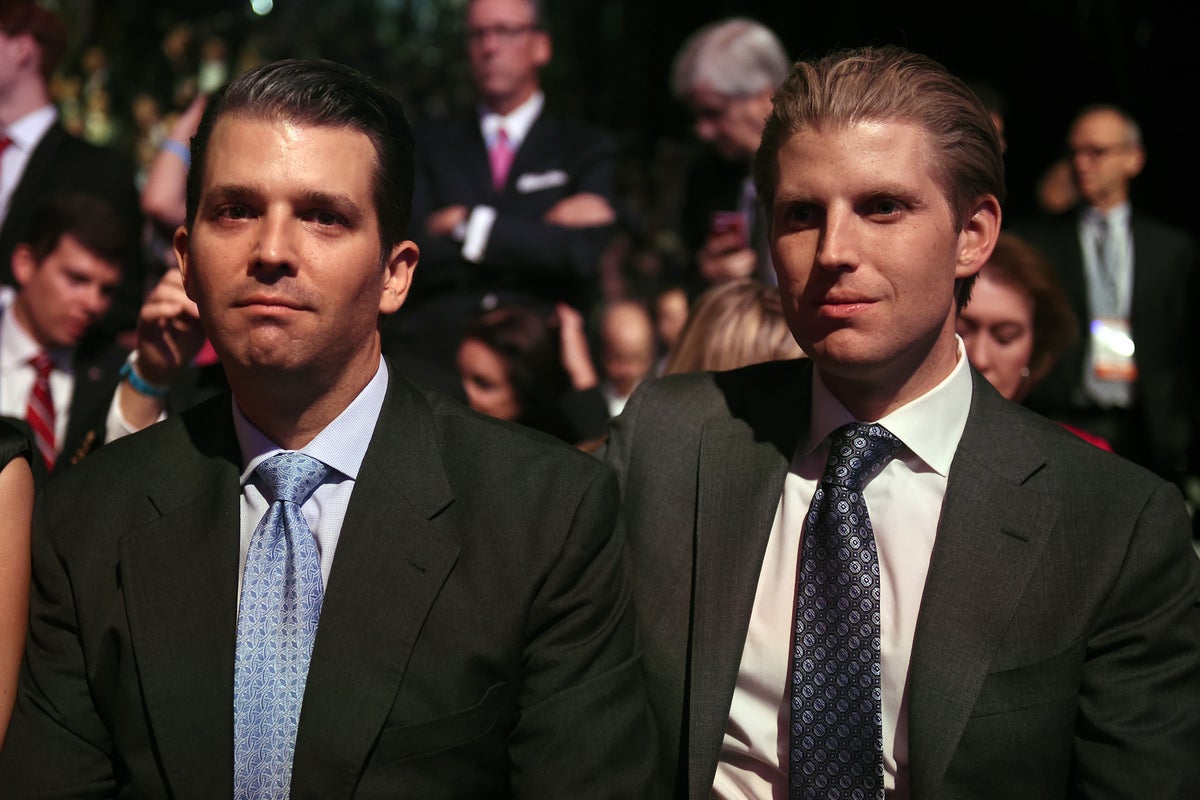UPDATE: U.S. taxpayers have incurred over $40,000 in expenses for hotel rooms and rental cars during a recent trip by Don Jr. and Eric Trump to the Middle East, raising serious questions about the use of public funds. The Secret Service confirmed that these costs stemmed from protecting the president’s sons as they pursued private business interests in Qatar and Saudi Arabia this past spring.
The expenses were detailed in federal procurement data reviewed by The Independent, revealing a staggering total of $40,797.24. This figure encompasses a $26,813.24 hotel stay for Don Jr. at The Ned, a luxury hotel in Qatar, and $13,984 for rental vehicles for Eric Trump, organized by the U.S. Embassy in Riyadh. These transactions were approved on May 18, 2025, just days after President Trump conducted his own visit to the kingdom.
The revelations come amid severe budget cuts from the Trump Administration that have negatively impacted thousands of government employees and essential programs, including school lunches for low-income children. As taxpayers foot the bill for the Trump family’s travels, the implications of these expenditures are becoming increasingly urgent.
A Secret Service spokesperson explained, “We support any of our protectees, that go anywhere in the world, including foreign trips.” The spokesperson further detailed that protection efforts require personnel to be on the ground well in advance of the visit, adding that the agency executes contracts for accommodations and transportation through U.S. embassies.
While the Trump Organization is nominally run by Don Jr. and Eric during their father’s presidency, they have been involved in lucrative business deals abroad. Just two weeks prior to their trip, the Trump Organization announced a partnership with a Qatari real estate firm to develop a luxury golf resort. Additionally, the family is reportedly advancing two real estate projects in Riyadh and a Trump Tower in Jeddah.
Critics have raised concerns over the ethical implications of the Trump family’s business dealings during his presidency. The Trump Organization previously pledged to refrain from foreign business deals while Trump was in office, a promise allegedly violated, as evidenced by the ongoing developments tied to their name. A spokesperson for the White House dismissed these concerns, asserting that the president follows all conflict of interest laws.
The financial implications of the Trumps’ travels echo past incidents where taxpayer dollars funded substantial expenses for the family, including a reported $90,000 hotel bill for First Lady Melania Trump during a brief trip to Cairo and over $22,000 for accommodations for Tiffany Trump during a separate overseas visit.
As scrutiny intensifies on the Trump family’s financial ventures and their potential overlap with public office, these latest findings underscore an ongoing debate about the monetization of the presidency. The urgency surrounding these expenditures prompts a closer examination of ethical standards and taxpayer accountability.
Looking ahead, officials and watchdog organizations are poised to continue their investigations into the Trump family’s business dealings and their financial impact on the American public. As this story develops, taxpayers and political observers alike will be watching closely for any further revelations that may arise.
